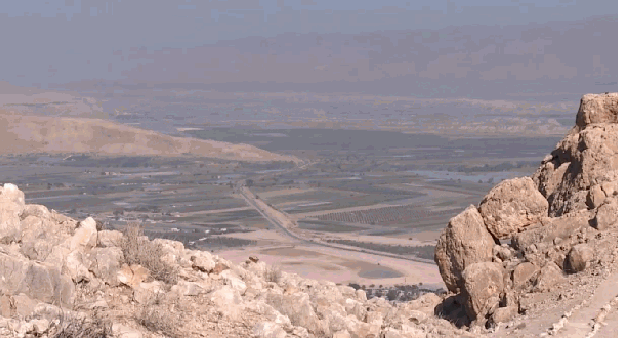U.S. Secretary of State John Kerry is continuing his travel across the Middle East in search of a peace agreement between Israelis and Palestinians.
One reported part of this agreement has many Israelis worried.
The Jordan Valley straddles the border between Israel and the kingdom of Jordan. According to some reports, Kerry is proposing an international force—perhaps U.S. troops—to control the valley and then eventually turn it over to the Palestinian Authority.
The Jordan Valley runs from the Sea of Galilee to the Dead Sea. It’s about 75 miles long and nine miles wide. It forms a natural barrier between Israel and its neighbors to the east: Jordan, Syria, Iraq and Iran.
Many see it as Israel’s security belt, a geographical barrier and an indispensible military buffer. The Palestinian Authority is reportedly demanding this area as part of an agreement with Israel.
But should Israel give up this strategic piece of land?
“Israel is entitled to defensible borders which Israel can defend itself with its own soldiers, and the only defensible borders are here on the Jordan Valley,” retired Israeli General Uzi Dayan told CBN News.
Dayan lectures military leaders worldwide about the strategic value of the Jordan Valley. He also points out it’s only 40 miles from the Jordan Valley to the Mediterranean Sea.
“Almost everybody understands my three points which says defensible borders should give you strategic depth, the capability to defend yourself against outside attack and combating effectively terrorism,” Dayan said.
Dayan also says instability on Israel’s eastern front in Syria, Iraq and Jordan is another reason to keep the Jordan Valley.
David Elhaiini, mayor of the Jordan Valley Regional Council, wondered what happen if Israel’s friends are wrong.
“Our friends, the United States, the European states say take chance for peace, take risks for peace and give up all the area. And what will happen after 5 and 10 years? If we will take those risks and the border will be near Tel Aviv. And they will throw fire and bombs on Tel Aviv,” Elhaiini said.
“We can’t take risks. The Jordan Valley has to be under Israeli sovereignty,” he added.
Past history has made Israelis reluctant to give away land. In 2000, they pulled out of South Lebanon and Hezbollah filled that vacuum. In 2005, Israel pulled out of Gaza and now Hamas controls it.
As the peace talks go on, many are hoping the same fate won’t come to the Jordan Valley.
For the original article, visit cbnnews.com.














































